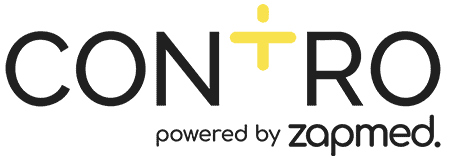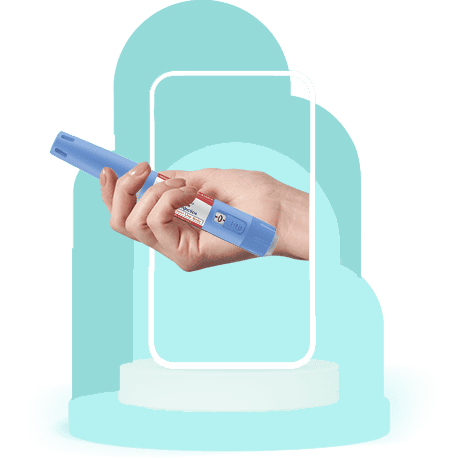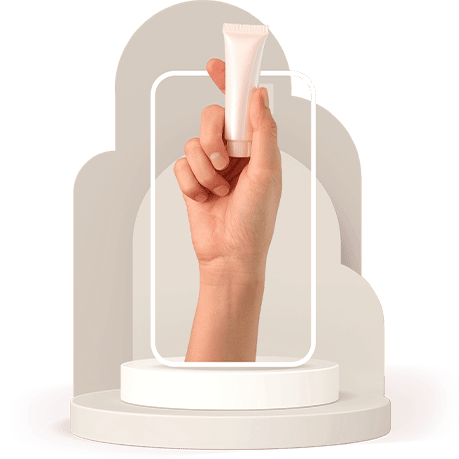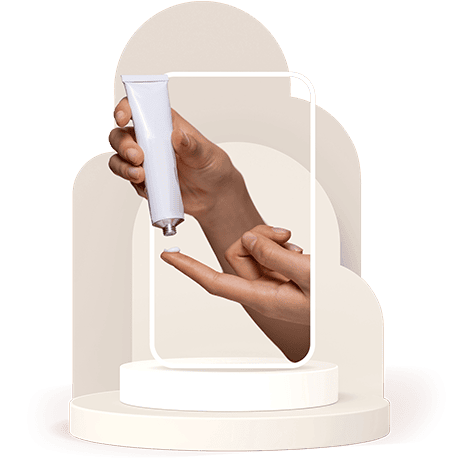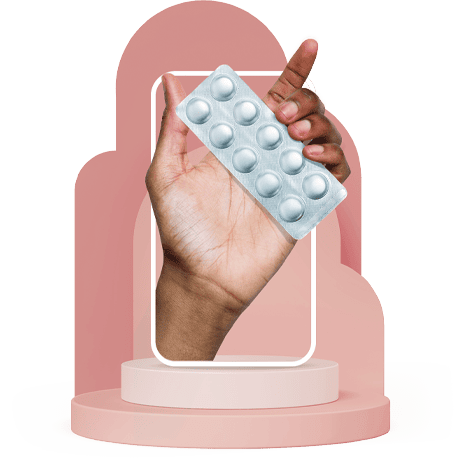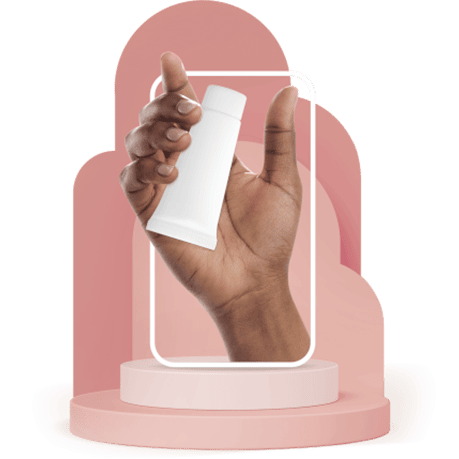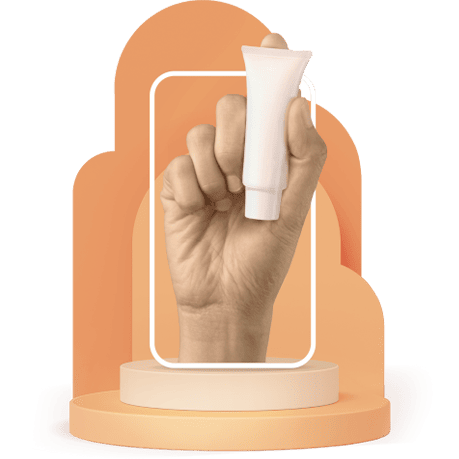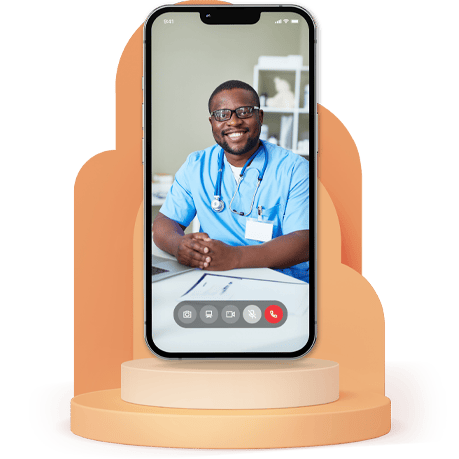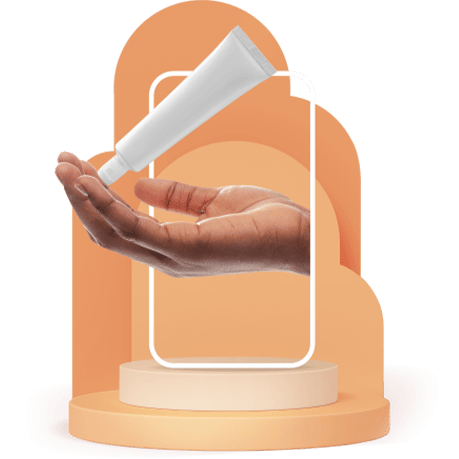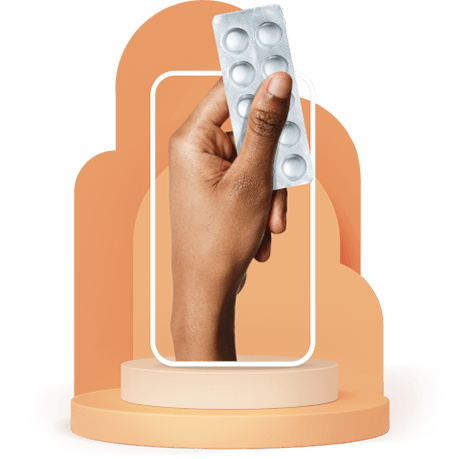
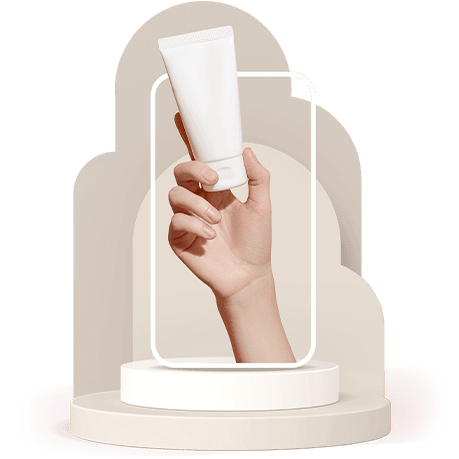
Rosacea Treatment
Rosacea is a chronic skin condition that primarily affects the face, causing redness, visible blood vessels, bumps, and sometimes, swelling. It typically begins with episodes of flushing, where the skin becomes red, often after triggers such as spicy foods, alcohol, sunlight, or stress.
1. Complete a health assessment
Decide what’s right for you and complete a quick, private medical assessment
2. Consult with a Partner Doctor online
Meet online with one of our licensed Partner Doctors to discuss your treatment options
3. Delivery
Have your medication delivered to your door.
Our Offering
Once-off Treatment
Medical Aid
From R450
Once-off Treatment
Doctor Fees
E-prescription Available
Service Fees
Medication Delivery
Prescribed Medication
Cash
From R750
Once-off Treatment
Doctor Fees
E-prescription Available
Service Fees
Medication Delivery
Prescribed Medication
Rosacea is common and treatable
Our Rosacea treatment offering allows you to virtually consult with one of our Partner Doctors for R450. While rosacea is not curable, it can be managed effectively with appropriate treatment. Treatment options may include topical medications and oral antibiotics.
Have your prescribed medication discreetly delivered to your door, or ask your assigned Partner Doctor during your consultation to receive your prescription via email for free.
Got any questions?
Chat to us live or check out our Helpdesk. Alternatively, you can email us at hello@zapmed.co.za
Rosacea flare-ups?
Worldwide, rosacea affects an estimated 415 million people, typically striking those with fair skin between the ages of 30 and 50. You are not alone!
From lifestyle adjustments to targeted treatments like topical creams and oral antibiotics, our Partner Doctors are armed with knowledge and determination to get you feeling more confident. When it comes to managing rosacea, you’re in control of your glow-up journey.
Rosacea
Rosacea Treatment
When should I get treatment?
- Over-the-counter remedies aren’t effective: if you’ve tried over-the-counter acne products for several weeks without improvement, it may be time to see a healthcare professional.
- Acne is severe or persistent: if your acne is severe, characterized by deep cysts, nodules, or widespread inflammation, or if it persists despite home treatments, professional intervention is recommended.
- Acne is causing emotional distress: if acne is significantly impacting your self-esteem, causing emotional distress, or affecting your daily life, seeking treatment can help address both the physical and psychological aspects of the condition.
- Risk of scarring: if you’re at risk of developing acne scars due to the severity or type of acne lesions you have, early treatment can help prevent scarring or minimize its appearance.
- Possible underlying causes: if you suspect underlying factors contributing to your acne, such as hormonal imbalances or medication side effects, it’s essential to consult a healthcare professional for proper evaluation and management.
Ultimately, the decision to seek treatment for acne depends on individual factors such as the severity of the condition, its impact on quality of life, and personal preferences. Consulting with a healthcare provider can help determine the most appropriate treatment plan tailored to your specific needs.
Can Rosacea be treated online?
Yes, a doctor can treat rosacea online based on your symptoms during a virtual consultation. At Contro, men and women over the age of 18 can chat with one of our Partner Doctors about their symptoms and get treatment prescribed and delivered to them.
Please note, that we are not an emergency service, and if you require urgent care please seek in-person treatment.
Our Partner Doctors reserve the right to refuse treatment based on their professional medical and ethical opinion.
How much does Contro’s Rosacea treatment service cost?
All customers will pay our R300 service fee once off.
Cash customers will additionally be charged for the cost of their prescribed medication each month. The price of rosacea treatment can vary and will depend on which medication and strength your assigned Partner Doctor prescribes you. The total once off cost for cash customers is between R300 – R610 depending on your prescribed medication.
The total once off cost for medical aid customers is R300.
Does Contro replace my primary doctor?
No, Contro’s service offering does not replace your primary doctor. We save you time and money by offering you a supplementary online delivery and subscription service, and therefore your assigned Partner Doctor does not replace your primary doctor or GP, and is not responsible for your ongoing primary care.
Can I claim through my medical aid?
Your consultation fee will be charged privately via Contro. After your consultation, you’ll receive an invoice containing the relevant telehealth consultation ICD code, which you can use to submit a claim directly to your medical aid provider.
Medication costs may be claimed on your behalf by our partner pharmacy. Please note that successful claims depend on your specific medical aid and plan benefits, and approval cannot be guaranteed. If a claim is unsuccessful, you’ll be notified and will need to settle the medication cost in cash to proceed.
Alternatively, you’re welcome to pay cash for both your consultation and medication, and use the invoices provided to claim directly from your medical aid provider.
When and how is my medication delivered to me?
Our Partner Doctors offer consultations Monday – Friday excluding public holidays. We aim to offer you a consultation within 2 business days.
After a successful consultation, your assigned Partner Doctor will produce a prescription for your prescribed medication which is sent electronically to our Partner Pharmacy. Our Partner Pharmacy will contact you telephonically to confirm your details and delivery address and will make a claim on your behalf if you have provided medical aid details.
Their pharmacy team will prepare and despatch your medication to your chosen delivery address. Once your order has been despatched, delivery time is 1-3 business days.
You will receive an SMS from our Partner Pharmacy to notify you that your medication has been despatched. This will contain a tracking number that will allow you to track your medication with the applicable courier service here.
Please note, that you cannot change your delivery address once payment has been processed and your prescription has been sent to our Partner Pharmacy for processing.
Our customers love Contro because it's safe, secure and trusted…

Excellent from start to finish!
The entire process was quick, easy to use and hassle free! The Doctor I spoke to was friendly, knowledgable and gave me excellent advice.

Great service
Honestly the doctor consultation was great and they prescribed the best contraceptives, delivery was bit shakey but the sorted it out in a day and I got my parcel! They agents continuously checked on and updated me through out the process! Absolutely recommend.

Wow - What an incredible service
Filled out the online form, had a few automatic emails to get a telephonic call from a doctor and wow. Super friendly Doctor, very helpful, explained everything I needed to know about the medication and meds dispatched within a day to my home. Greatest service ever.

This is the most genius thing ever
This is the most genius thing ever! Quick consultation with expert advice. Got my delivery a day after - to my door. I don’t have to pay doctors fees and prescriptions which is close to 1k. Extremely affordable and convenient. Love it!

Everything is simple and you won't be disappointed!!
The response and the next step is always clear and communicated immediately. I loved my phone call consultation with Dr. Wihcone Mouton as she made me feel so comfortable. My medication was delivered quickly and in time for me to take it. I am so grateful that Contro exists

Efficient and Discreet
Brilliant service. Very quick, easy, efficient and discreet. This is great for people who don't have the time, or in many cases the nerve to go to a doctor in person to get their medication scripts. I recommend this service 100%

Featured in multiple media publications...

